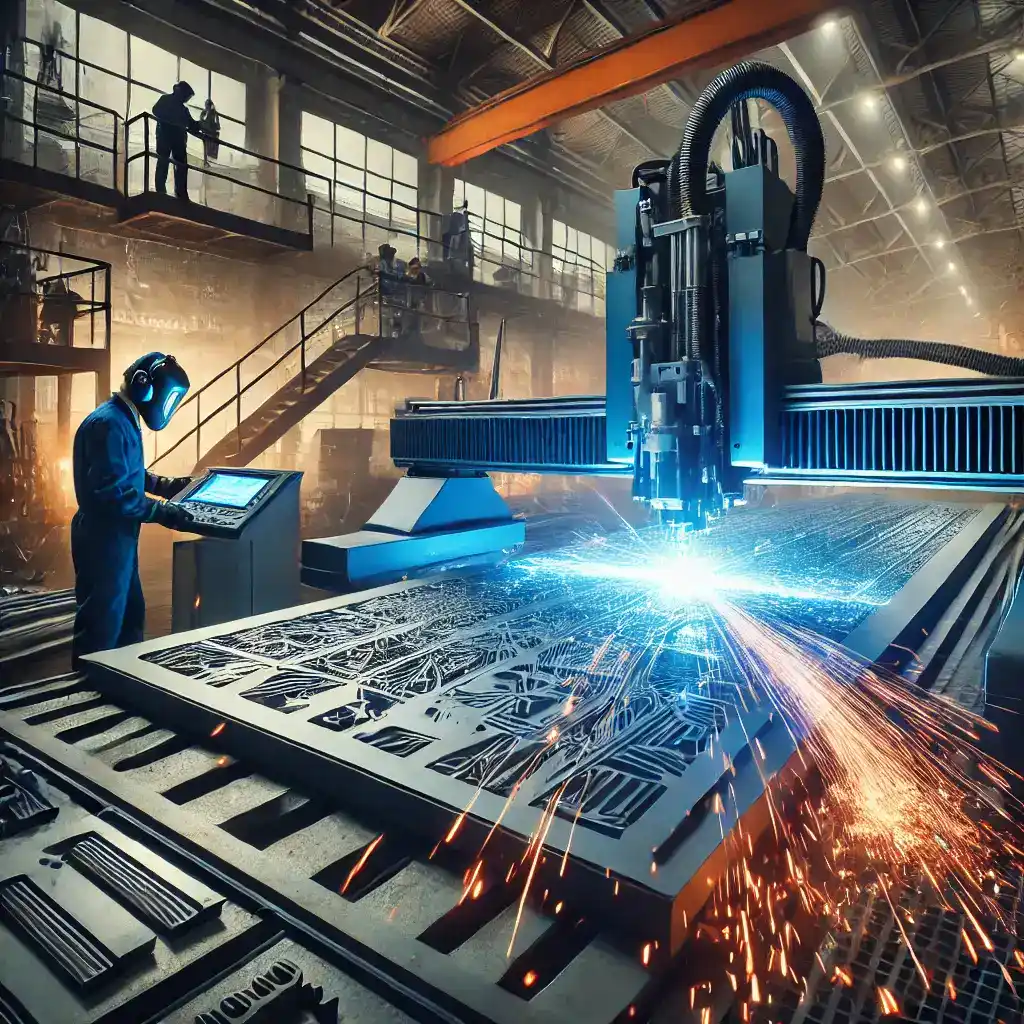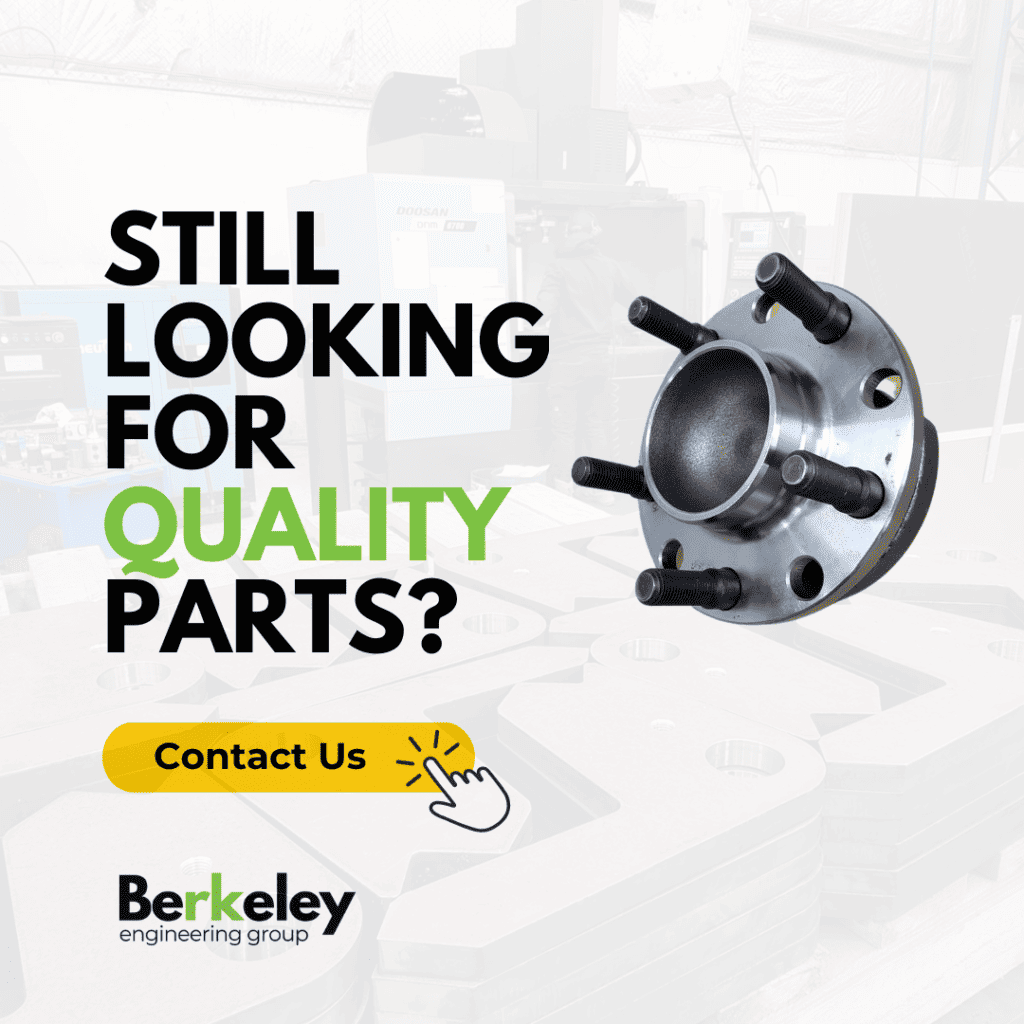
Inside a Modern Metal Fabrication Shop: What to Expect and Ask For

When it comes to selecting a reliable metal fabrication partner, procurement managers need more than just pricing – they need transparency, consistency, and proven capability. Today’s metal fabrication shops are advanced operations that combine technical expertise, specialised equipment, and tailored services across a wide range of industries including construction, mining, automotive, and medical. Understanding what goes on inside a modern fabrication shop – and knowing what to ask – empowers you to make informed vendor decisions that align with your project’s quality, lead time, and compliance requirements.
This article walks you through what to expect from a professional metal fabrication shop, the key processes and capabilities you should look for, and the questions to ask to ensure the shop can meet your technical specs. Whether you’re sourcing large-scale structural steel components, precision sheet metal parts, or customised stainless steel assemblies, this guide will help you engage suppliers with confidence – and recognise red flags early.
Key Takeaways
- Modern metal fabrication shops integrate advanced technology like CNC machines, laser cutters, and welding systems to deliver high-precision metal components.
- A qualified shop offers end-to-end services including design, prototyping, fabrication, finishing, and quality control under one roof.
- Ask about experience in your specific industry, from mining and construction to medical and automotive.
- Always assess welding certifications, material traceability, surface treatment capabilities, and ISO or AS compliance.
- Clear communication, fast turnaround, and consistent quality are non-negotiables in long-term supply relationships.
- Fabrication capabilities should include a range of materials like stainless steel, mild steel, aluminium, and carbon steel.
- A professional fabrication shop will have documented QA processes, a skilled team, and the ability to scale from custom work to volume production.
Summary Table
| Feature | What to Expect from a Quality Fabrication Shop |
|---|---|
| Capabilities | CNC machining, laser cutting, TIG/MIG welding, bending, finishing |
| Materials | Stainless steel, aluminium, carbon steel, mild steel, sheet metal |
| Industries Served | Mining, construction, automotive, agriculture, medical |
| Certifications | ISO 9001, welding certifications, material traceability |
| Team & Tech | Experienced team, computer-controlled machines, QA systems |
| Services Offered | Design, prototyping, production, finishing, delivery |
| Benefits | Precision, durability, scalability, fast turnaround, compliance |
| Questions to Ask | Can they handle your material? What’s their QA process? Can they scale? What surface finishes are available? Do they have industry experience relevant to your needs? |
Understanding the Fabrication Process from Start to Finish
Walking into a modern metal fabrication shop, you’ll immediately notice the sophistication of today’s fabrication process. From raw metal materials like carbon steel, mild steel, aluminium, and stainless steel, fabricators transform stock into precision-engineered metal components through multiple stages — cutting, forming, welding, assembling, and finishing.
Cutting methods include high-efficiency laser cutting, plasma cutting, and CNC machines that shape sheet metal into various shapes with high accuracy. Once shaped, metal is formed using press brake machines for bending, which is particularly critical for structural fabrication and sheet metal fabrication projects in industries like mining, construction, and transport.
Welding comes next. Shops often specialise in processes like gas metal arc welding (GMAW) and gas tungsten arc welding (GTAW), offering precision in joining everything from stainless steel to expanded metal and structural beams. Fabricators then assemble parts using jigs and fixtures, often verified by a dedicated engineering team to meet the highest industry standards.
The final phase involves finishing — with options like powder coating, galvanising, or polishing — tailored to suit environmental demands or industry specifications. For any procurement manager, understanding these stages helps you assess whether a fabrication partner can consistently deliver on quality, efficiency, and production scalability.
Equipment and Technology: What Should You See on the Floor?
A telltale sign of a capable fabrication company is their investment in technology. Look for computer-controlled machines, CNC routers, and cutting-edge welding machines. These tools are the backbone of producing custom parts and complex shapes with repeatable accuracy, essential in fields like the automotive industry, aerospace industry, and medical devices.
Today’s metal fabrication shops often have dedicated zones for stainless steel fabrication, aluminium fabrication, and carbon steel processing to avoid material contamination — critical for jobs requiring aesthetic appeal or sanitary standards. This segregation supports industries like appliance manufacturing, medical, and food-grade processing, where surface quality matters.
You should also expect to see automation throughout. From robotic welders to auto-feed sheet metal cutters, shops investing in automation typically offer fast turnaround and improved customer satisfaction through precision and volume capability. These tools not only increase productivity but help mitigate risks like human error and rework.
If you’re a procurement manager, don’t be afraid to ask for a walk-through of the production floor. Understanding what machinery is in use gives you insight into fabrication services available, their industry experience, and how capable they are of scaling for large scale or tailored services.
Questions to Ask Your Fabricator Before Committing
Before engaging any metal fabrication shop, knowing what to ask is key to avoiding misalignment in expectations, cost, and capability. Begin by inquiring about the shop’s industry experience — do they regularly serve your sector, whether it’s mining, automotive, agriculture, or appliance manufacturing?
Ask about fabrication methods and whether they offer custom metal fabrication for intricate shapes, or are limited to basic assemblies. If you’re sourcing for a job involving structural steel fabrication, determine whether they handle in-house welding or outsource — this affects both turnaround time and quality control.
Another crucial area is compliance. A strong vendor will be upfront about ISO standards, inspection processes, and any required documentation for traceability. Ask if they follow practices for separating base metal types to avoid contamination — particularly important in stainless steel fabrication or projects needing high durability.
Finally, be clear about material sourcing, especially if your spec requires certified metals or sustainable sourcing practices. The right questions reveal whether you’re dealing with a capable partner or just a generalist.
How to Evaluate Quality Control and Final Product Integrity
In metal fabrication, quality isn’t optional — it’s non-negotiable. Reputable shops will have strict protocols at every stage, from raw metal intake through to final inspection. Look for signs of this as you tour the facility or review their documentation.
Ask about their inspection process — are tolerances verified after laser cutting? Is there weld testing for structural parts? Do they use CMMs (Coordinate Measuring Machines) or manual gauges to ensure high precision? For industries like automotive manufacturing, where failures can be catastrophic, consistent inspection is vital.
Fabricators serving the aerospace, mining, or medical sectors often maintain detailed documentation for each fabrication process, including material certification, heat treatment records, and weld logs. If a vendor lacks this visibility, it’s a red flag.
Also important is how they handle finishing. Whether it’s powder coating, plating, or polishing, a good shop will offer a finishing method that suits your environment and use case — for instance, corrosion resistance in outdoor structures or sterile finishes for medical devices.
The Value of a Long-Term Metal Fabrication Partner
While price and turnaround are important, many procurement managers overlook the long-term value of partnering with a skilled fabrication company. A vendor who understands your specific industry and can adapt to your evolving needs saves both time and money over time.
For example, a fabricator with an experienced team can help optimise your design for manufacturability — reducing material waste, simplifying assembly, and improving overall production costs. This is especially valuable in projects that require custom metal fabrication or tailored services across various industries.
Additionally, ongoing relationships allow for better project planning and fast turnaround, since the shop becomes familiar with your workflows and quality expectations. This relationship model leads to smoother communication, quicker approvals, and consistent outcomes.
Whether you’re sourcing components for exhaust systems, building metal structures, or rolling out a new sheet metal product line, a trusted partner becomes an extension of your team — not just a vendor.
Final Thoughts
Choosing the right metal fabrication shop goes beyond price—it’s about precision, trust, and alignment with your long-term business needs. A modern facility equipped for sheet metal fabrication, custom parts, and demanding quality standards can become a strategic asset in your supply chain.
Whether you’re working in the automotive, agricultural, medical, or mining industry, asking the right questions, understanding the fabrication process, and assessing your vendor’s capabilities up front gives you confidence in every job.
At Berkeley Engineering, our commitment to high accuracy, durability, and fast turnaround means we’re ready to support even the most complex requirements with proven technical expertise and a truly experienced team. When it comes to sourcing metal components, rely on a partner that’s as invested in your success as you are.
FAQs Answered
1. What should procurement managers ask when choosing a metal fabrication shop?
Procurement managers should ask about the vendor’s experience with custom metal fabrication, their capabilities across materials like mild steel and aluminium, and whether they offer CNC machining and laser cutting. At Berkeley Engineering, we encourage clients to also ask about lead times, certifications, and how the shop handles quality control throughout the fabrication process.
2. How do fabrication shops ensure high-quality stainless steel fabrication?
Top-tier metal fabrication shops maintain quality by using precision welding machines, following ISO-aligned processes, and testing fabricated parts for structural integrity. At Berkeley Engineering, we apply strict QA measures across all stainless steel fabrication, including when handling sheet metal for medical or industrial use.
3. What machines are used to fabricate complex metal components?
To create intricate shapes and metal components for industries like automotive, construction, and mining, shops use a combination of CNC machines, press brakes, laser cutters, and both gas metal arc and gas tungsten arc welding setups. Berkeley Engineering invests in high-accuracy machines to ensure repeatability and reliability in every job.
4. How can I evaluate if a metal fabrication company can handle large-scale projects?
Assess their capacity for large-scale fabrication, the industries they serve (like the mining industry or appliance manufacturing), and whether they have a highly skilled team that can manage a full range of services from design through to powder coating. Berkeley Engineering supports clients with end-to-end project delivery and scalable production for repeat orders.
5. Why is aluminium fabrication important in industries like automotive and aerospace?
Aluminium fabrication allows for durable, lightweight, and corrosion-resistant parts — ideal for use in automotive manufacturing, aerospace structures, and even medical devices. Berkeley Engineering regularly fabricates custom aluminium components that require high precision and fast turnaround, particularly for clients in transport and infrastructure.
Who are we?
Berkeley Engineering has a rich history of producing high-quality components since 1931. Our CNC machining operations in Australia offer a comprehensive range of services, including CNC turning, metal fabrication, plasma cutting and more. We are dedicated to delivering custom components of the finest quality for your projects. Whether you require low or high volume production, our manufacturing services are cost-effective and efficient, with turnaround times as fast as one business day.
Contact Us:
We'd love to discuss your next project and how our partnered solutions can scale with your business operating needs.


